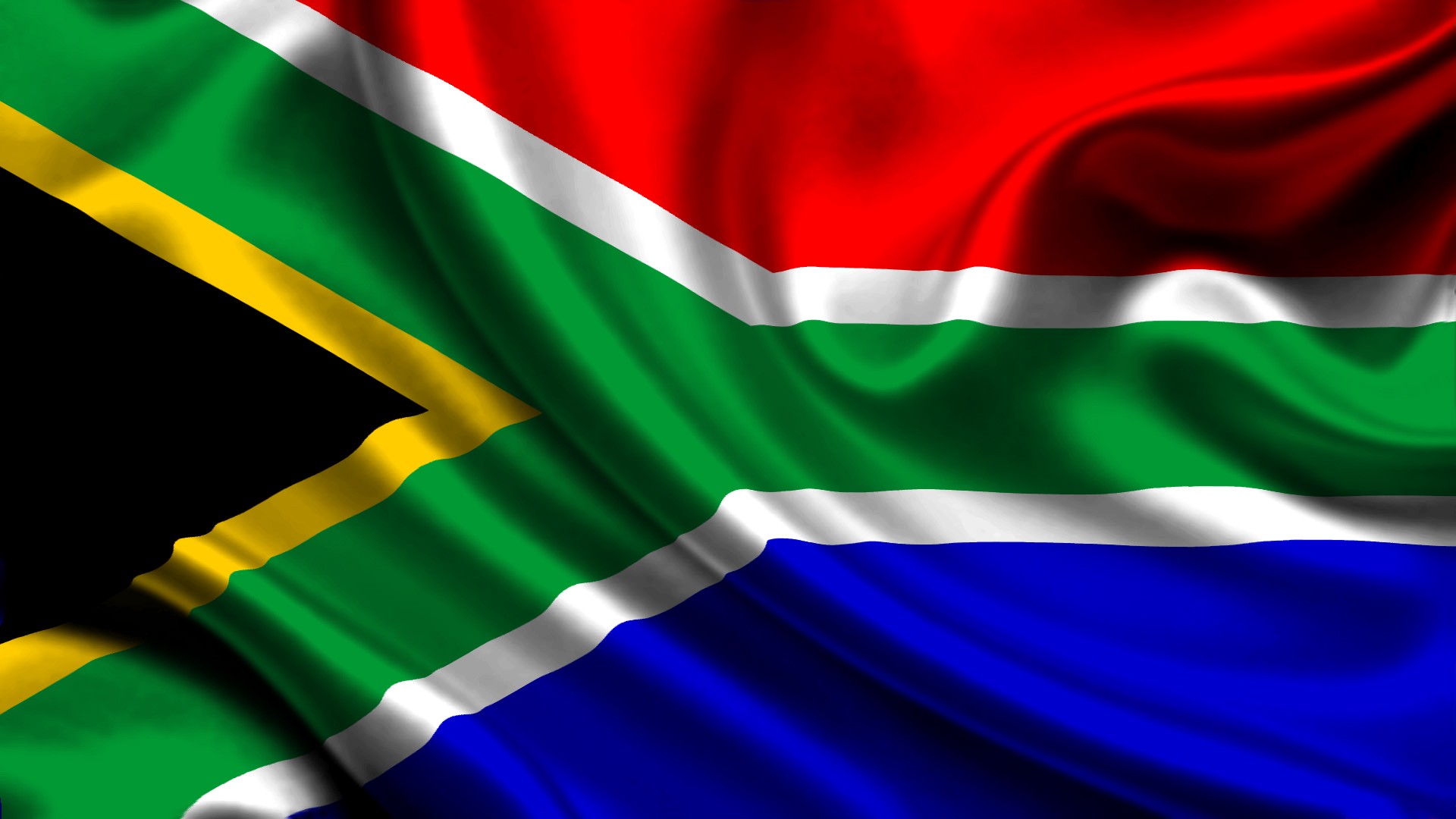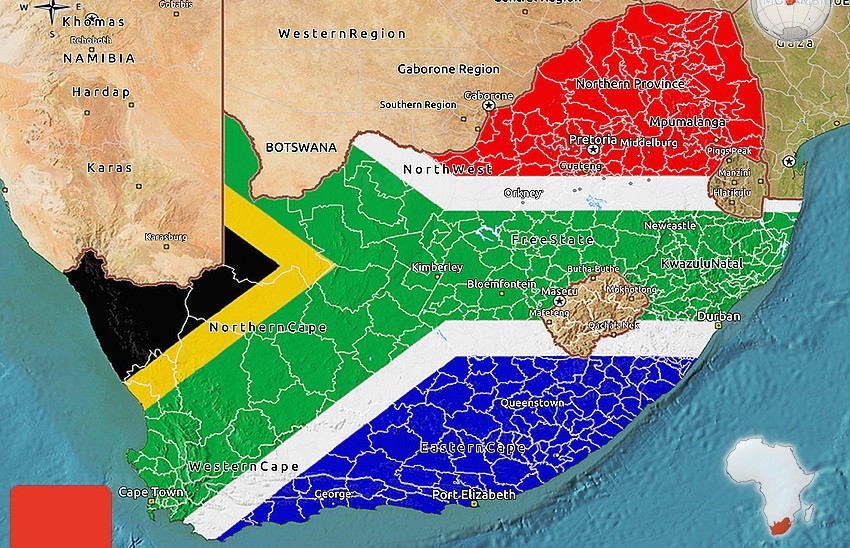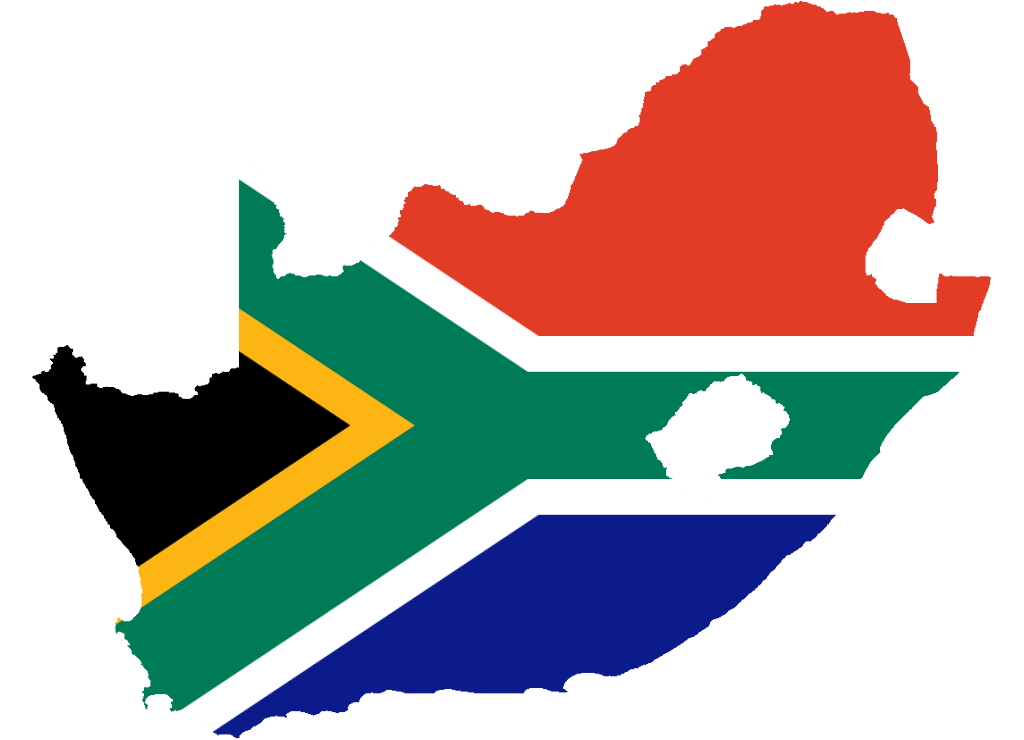The South African Flag is one of the fascinating flags in Africa. Its artistic colour blend leaves one wondering how South Africa got the amazing multi-coloured flag. Here, we present to you interesting facts you never knew about the South African Flag.
Brief History and Meaning of the South African Flag
The South African Flag was designed by State Herald Frederick Brownell in March 1994 and was first adopted on the 27th of April the same year.
Prior to this time, a public competition was held in 1993 for the design of the national flag, to this, the National Symbols Commission received more than 7,000 designs. Six designs were drawn up and presented to the public and the Negotiating Council, but none elicited enthusiastic support. A number of design studios were contacted to submit further proposals, but they were again without success. Parliament went into recess at the end of 1993 without a suitable candidate for the new national flag. But on March 15, 1994, Brownell’s design was unanimously adopted by the Transitional Executive Council.
The new national flag was initially only an interim flag and was selected and used at the last minute before the 1994 presidential elections. To South Africans, the new flag symbolizes the convergence of the disparate groups within South African society and their unification in one democratic state. The new national flag was hoisted to replace the flag that had been used since 1928.
Colour and Symbols
Do you know that Flags were first brought to South Africa by the European explorers trying to find a sea route from Europe to India and the Far East? The first to reach what is now South Africa were the Portuguese explorers followed by the Dutch, then the British each bringing along its country’s flag. No wonder the South African Flag has touches of the colours of these flags on her new flag.
The South African National Flag comprises of two horizontally placed stripes. The red stripe is on the top and the blue stripe is at the bottom. The two horizontal bands both have equal width, separated by a central green band which splits into a horizontal “Y” shape, the arms which end at the corners of the hoist side. The left side of the flag has a black triangle outlined in yellow. The Black, gold and green colours were the first colours that were incorporated into the South African national flags in the 19th century. It features prominently in the flags of the liberation movements, particularly the African National Congress (ANC) which was Mandela’s political party, the Pan-African Congress (PAC) and Inkatha.
The other three – red, white and blue – reflect the flags of the old Transvaal colony (which also has green), the Dutch tricolour and the British Union flag. The ‘Y’ shape flowing into a single horizontal band to the outer edge of the flag, is commonly interpreted to mean the unification of the various ethnic groups and the moving forward into a new united South Africa. In all, the colourful structure of the South African Flag symbolizes Unity and Progress.
According to Ancient and Heraldic traditions, much symbolism is associated with colours. The colours on the South African flag speaks a lot about the South African people and their history. South Africans call this the “rainbow nation” based on the multiracial, the multi-ethnic and multicultural composition of the country, hence many refer to the new flag as the “rainbow flag”.
Black (Blue/Black) symbolizes the people and the determination of the black race, the blue represents the Atlantic and Indian oceans, it also represents vigilance, truth, loyalty, justice and perseverance of the people or according to a different version, the wide sky overhead. The red (referred to as chilli red) represents the country soaked with bloodshed during the wars of the past that cannot be forgotten, it also represents bravery, hardiness, and strength.
Green represents the fertility of the land and also love, hope, and joy for the land. Yellow stands for the mineral wealth beneath the soil, generosity as well as the abundance of gold for which South Africa is well known. White represents the white population of South Africa, honesty, and peace.
See Also: Reed Dance In South Africa: 10 Things You Didn’t Know About The Exotic Dance
Facts About the Flag
Seeing the National Flag flying high in the sky, South Africans cannot help remembering the following:
1. That it symbolizes the convergence of the disparate groups within South African society and their unification in one democratic state.
2. It brings to mind the beginning of South Africa’s political transformation into a democratic government and the end of Apartheid regime
3. It reminds the people of the first time they were allowed to take part in the country’s electoral process. It was also the first held with universal adult suffrage conducted under the direction of the Independent Electoral Commission (IEC).
4. The flag is a clear example of South Africa’s commitment to nondiscrimination. The colours of the flag were deliberately not given any official symbolic meaning so everyone can make the colours of the flag personally meaningful.
5. It also reminds South Africans of the rise and emergence of Nelson Mandela as their new democratic leader as the choice for a new flag was part of the negotiation process set in motion when Nelson Mandela was released from prison in 1990.
6. At the time of its adoption, it was the only national flag in the world to contain six colours as part of its primary design.
Nick Names for the South African Flag
Just as we know, the South African flag is one of the most recognizable in the world that is yet to have a name. Years back, a Pretoria-based publishing house called for the public to suggest a nickname for the South African flag. Responding to this announcement made in Cape Town where WildNet Africa launched a book titled Flying with Pride: The Story of the South African Flag, South Africans came up with suggestions of names they feel will be perfect for their beloved flag. Some said it should be called Unity flag because it symbolized the unification of all the country’s ethnic group.
Other suggestions include the Interim flag, Southern Crane, Southern Union, Oranje Union, Rainbow Salad, AmaFlappaFlappa and lots more. It’s interesting to know that many South Africans wanted the flag to be nicknamed Madiba, or Madiba’s Rainbow, the Mandela Flag, or even just Nelson.
Well, one of the most widely accepted names is the Rainbow Flag perhaps because the country is nicknamed the Rainbow Republic. However, the name is not yet officially accepted.
See Also: 10 Obvious Signs That You Are A True South African
South African Flag Rules
Like in other countries, there are a number of traditional rules of respect that should be observed when handling or displaying the South African National Flag. Here are some of the rules guiding the use of the South African flag you must know:
1. The flag must never be allowed to touch the ground or the floor.
2. Tables, podiums, railings or platforms should never be draped with the flag.
3. The flag should never be used as underclothes, bath mats or any derogatory application.
4. The flag should never be used for any commercial advertising in a manner that is disrespectful to the flag.
5. Use of the National flag in artefacts or manufactured products is subject to the sanction of the presidency and the Department of Trade and Industry.
6. The flag should always be hoisted at the start of the working day and lowered again before or at sunset.
7. The flag should be hoisted briskly and lowered ceremoniously.
8. The flag should never be used to start or finish any competition, race or similar event.
South African National Flag is the most commonly used visual symbol of South Africa. If you see this flag no matter where you are in the world, you will know that either a South African or a friend of South Africa is near.



